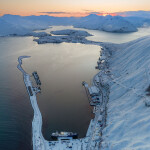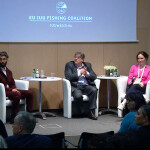New research at a Scottish university will explore how remote electronic monitoring, developed as a tool to monitor fish discards, can effectively reduce the quantity of fish dumped back into the sea.
Supported by EUR 4,825 in funding from the Scottish Fishermen’s Trust, the University of Aberdeen study aims to pinpoint how exactly the technology can contribute valuable data to fisheries management.
The high profile issue of discards continues to grab media attention in the United Kingdom and to incite polar opinions. Bertie Armstrong, CEO of the Scottish Fishermen’s Federation, said recently “banning discards is like banning road accidents.”
While UK celebrity chef Hugh Fearnley-Whittingstall has mounted a successful UK media campaign to raise awareness among consumers for an end to discards, to date more than 700,000 people have signed his Fish Fight petition.
REM, developed as a tool for monitoring fish discards, involves fitting fishing vessels with CCTV cameras and sensors to monitor the catching and processing of fish at sea. According to scientists working on the project, human observers have traditionally worked onboard fishing vessels to monitor the species and amounts being caught. But there is concern that the presence of an observer actually influences discarding practices, making the data that are collected inaccurate.
Called “Evaluating observer effects in discard sampling,” the Scottish study aims to “compare the discarding rates estimated by a human observer with discarding rates determined by CCTV monitoring,” says project supervisor Dr. Tara Marshall.
The project builds on earlier research conducted last year by Rosanne Dinsdale; for her previous work, Dinsdale analyzed 19.5 hours of CCTV footage and counted approximately 21,000 discarded fish, making up more than 25 different species.
The fishing industry says REM is a key element of the Scottish government’s policy for managing fisheries and its importance “will increase as more vessels and more species are included in conservation initiatives like the catch quota schemes.”
Proposals published in July to amend Europe’s much-maligned fishing policy, the Common Fisheries Policy, include recommendations to ban discards.





